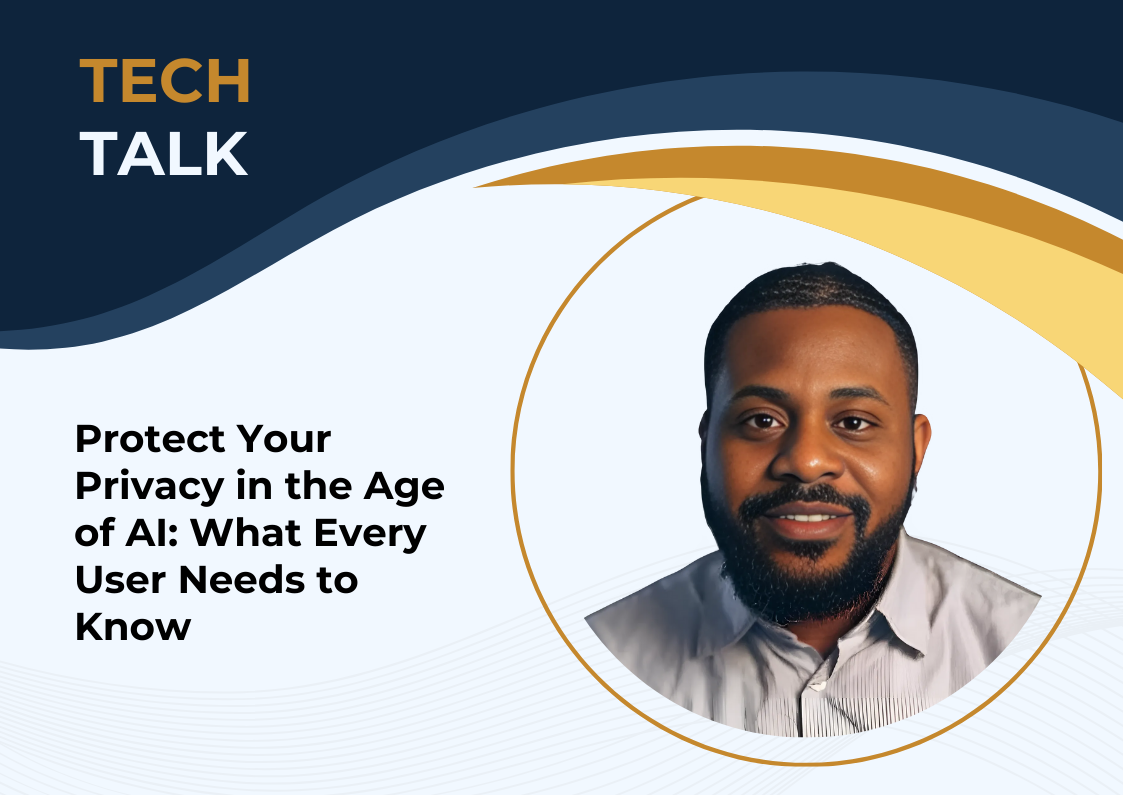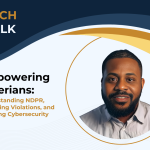How to protect your privacy in the Age of AI, Artificial Intelligence (AI) has revolutionized how we interact with technology, providing automation, enhanced decision-making, and personalized experiences.
However, as AI systems become more integrated into everyday life, they also present significant cybersecurity risks. Many users unknowingly expose sensitive personal or business data when using AI platforms, leading to potential data breaches, unauthorized AI training, and privacy violations.
As AI technology continues to evolve, understanding these risks and taking proactive measures to protect data is essential. One of the biggest concerns is the unintended collection and retention of user data.

Many AI platforms store user input to improve their models, but they often do so without clear transparency.
Users who input confidential business strategies, financial details, or personal identifiers into AI systems risk having their data analyzed and potentially incorporated into future AI models.
A notable example occurred in 2023 when Samsung employees unintentionally leaked sensitive company information by using ChatGPT for debugging and summarizing internal documents.
Their data was stored by the AI platform, raising serious concerns about corporate security and data protect. Another major risk comes from AI models learning from user interactions. Many AI systems are trained on publicly available and user-submitted data, making it possible for confidential information to become part of an AI’s knowledge base.
If users unknowingly provide proprietary or sensitive data, others may be able to extract similar details through clever prompts.
OpenAI’s early AI models, for instance, were found to generate excerpts from copyrighted materials and proprietary documents, revealing the dangers of AI training on unverified user inputs.
This issue raises ethical and legal concerns, particularly in industries that handle sensitive intellectual property, healthcare records and financial data.
The risk of data breaches further complicates AI-related cybersecurity.
AI companies store vast amounts of user-generated data, making them attractive targets for cybercriminals.
If hackers gain access to an AI system’s database, they could extract sensitive user queries, private conversations, or confidential business insights.
In 2021, a chatbot service provider suffered a major data breach, exposing millions of user conversations.
Many of these interactions contained personal financial transactions, medical inquiries, and corporate discussions, demonstrating how AI platforms can become security vulnerabilities if proper safeguards are not in place.
Beyond data breaches, ethical concerns regarding AI transparency and accountability are growing.
Many AI companies do not fully disclose how they use user data for training purposes. While some claim to anonymize and aggregate data, there have been instances where personally identifiable information appeared in AI-generated responses.
This lack of transparency creates uncertainty for users who assume their interactions are private.
.jpg)
Furthermore, AI-generated content can reflect biases and inaccuracies derived from flawed training data, posing additional risks when handling sensitive topics such as legal cases, medical advice, or financial recommendations.
Real-world examples highlight the dangers of AI-related privacy violations. In 2019, Apple faced backlash when it was revealed that contractors were listening to Siri recordings to improve AI performance.
These recordings contained private conversations, including medical discussions and business negotiations and users were unaware that their data was being analyzed by third parties.
Similarly, Google’s “Project Nightingale” initiative sparked controversy when reports surfaced that the company had accessed hospital patient records without adequate anonymization or explicit patient consent.
More recently, a 2023 ChatGPT data leak exposed conversation histories of some users, allowing others to see past queries and responses that were never meant to be shared publicly.
To mitigate the risks of data exposure when using AI, individuals and organizations must take proactive steps to protect their information.
The first and most crucial measure is to avoid inputting sensitive or confidential data into AI platforms.
Users should refrain from sharing passwords, financial details, proprietary business strategies, or personally identifiable information when interacting with AI systems.
Instead, AI should be used for general inquiries, brainstorming, or research that does not involve critical data.
Understanding and reviewing AI platform privacy policies is also essential. Before using an AI service, users should verify whether the platform retains user data, uses it for training, or shares it with third parties.
Some AI providers allow users to opt out of data retention, an option that should be enabled whenever possible to minimize exposure risks. Additionally, choosing AI tools with strong privacy measures such as on-premise AI solutions or self-hosted models can offer greater control over data security.

For businesses and organizations, implementing AI governance policies is Key to safeguarding corporate information.
Companies should educate employees on the risks of entering sensitive data into AI platforms and establish guidelines for secure AI usage.
Encrypting and anonymizing data before interacting with AI can further enhance security, ensuring that raw confidential information is not directly processed by external AI services.
Organizations handling highly sensitive data should also explore privacy-preserving AI techniques, such as federated learning or differential privacy,
which allow AI models to improve without exposing raw data.
AI presents immense opportunities, but it also comes with significant cybersecurity challenges.
Without proper safeguards, users risk exposing personal, financial, or corporate data to AI platforms tha t may store, analyze, or inadvertently leak this information.
By understanding these risks and taking proactive measures, such as avoiding sensitive data input, reviewing privacy policies and implementing strict security protocols, individuals and organizations can protect themselves from AI-related cybersecurity threats.
As AI technology continues to advance, ensuring responsible usage and data security will be critical in maintaining trust and privacy in the digital age.
Read the latest edition of SuccessDigest and discover How to Get Rich Selling Your Brain















